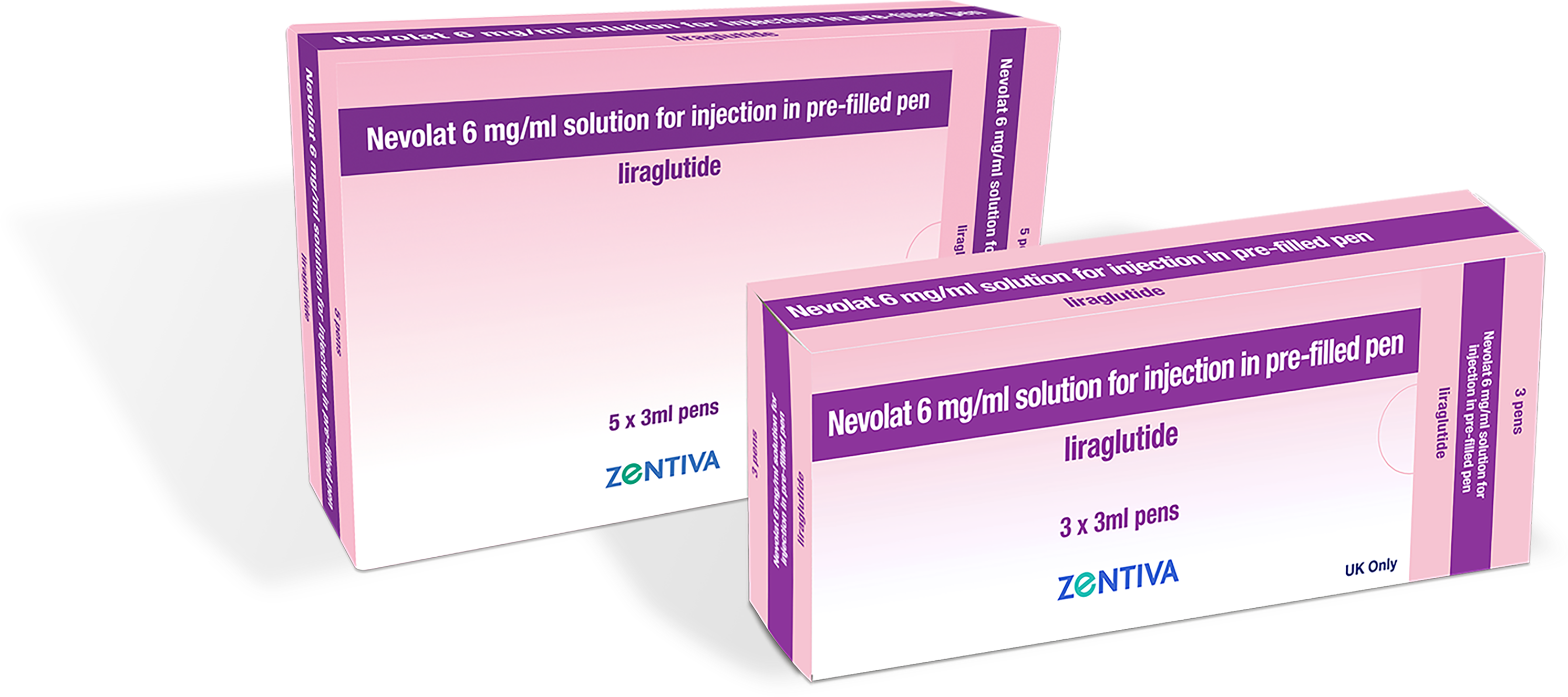Special warnings and precautions for use
The information below provides details on patients where liraglutide is contraindicated or where caution and vigilance should be taken when prescribing.1

The information below provides details on patients where liraglutide is contraindicated or where caution and vigilance should be taken when prescribing.1
Hypersensitivity 
Patients with heart failure 
Special populations 
Pancreatitis 
Cholelithiasis and cholecystitis 
Thyroid disease 
Heart rate 
Dehydration 
Hypoglycaemia in patients with type 2 diabetes mellitus 
Paediatric population 
Hyperglycaemia in insulin-treated patients with diabetes mellitus 
Excipients 

GLP-1 RA, glucagon-like peptide-1 receptor agonist; SmPC, Summary of Product Characteristics.
- Nevolat® (liraglutide) Summary of Product Characteristics. Available from: https://www.medicines.org.uk/emc/product/100226/smpc. Accessed December 2024
000697594 | December 2024



